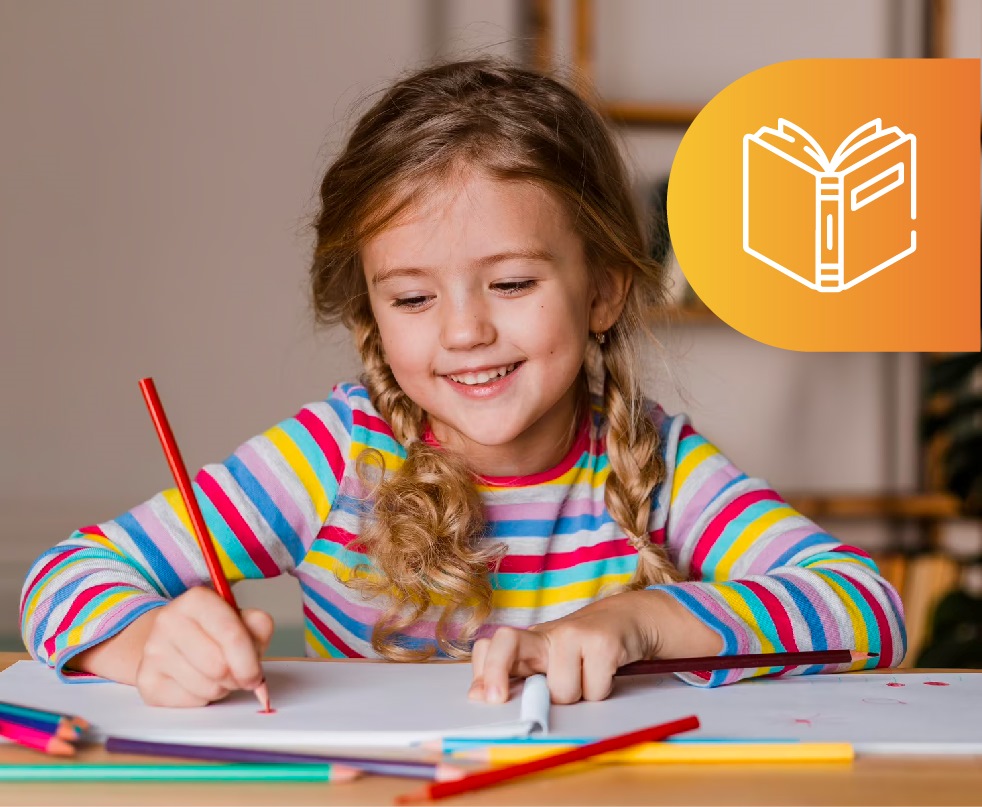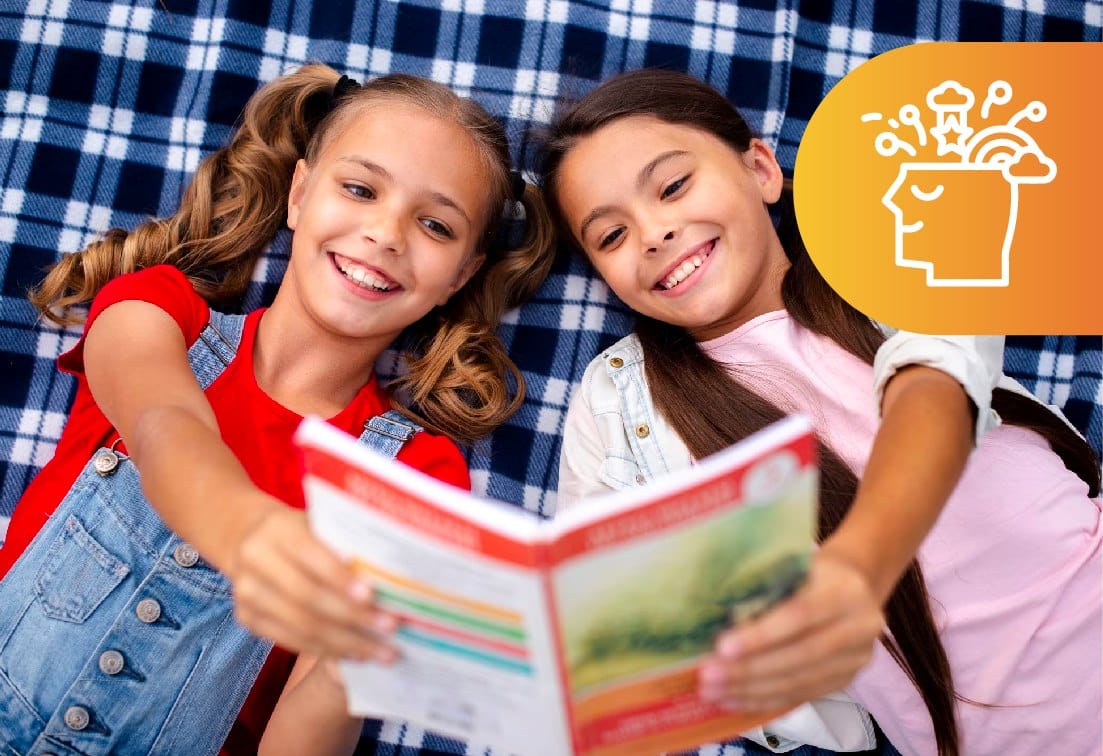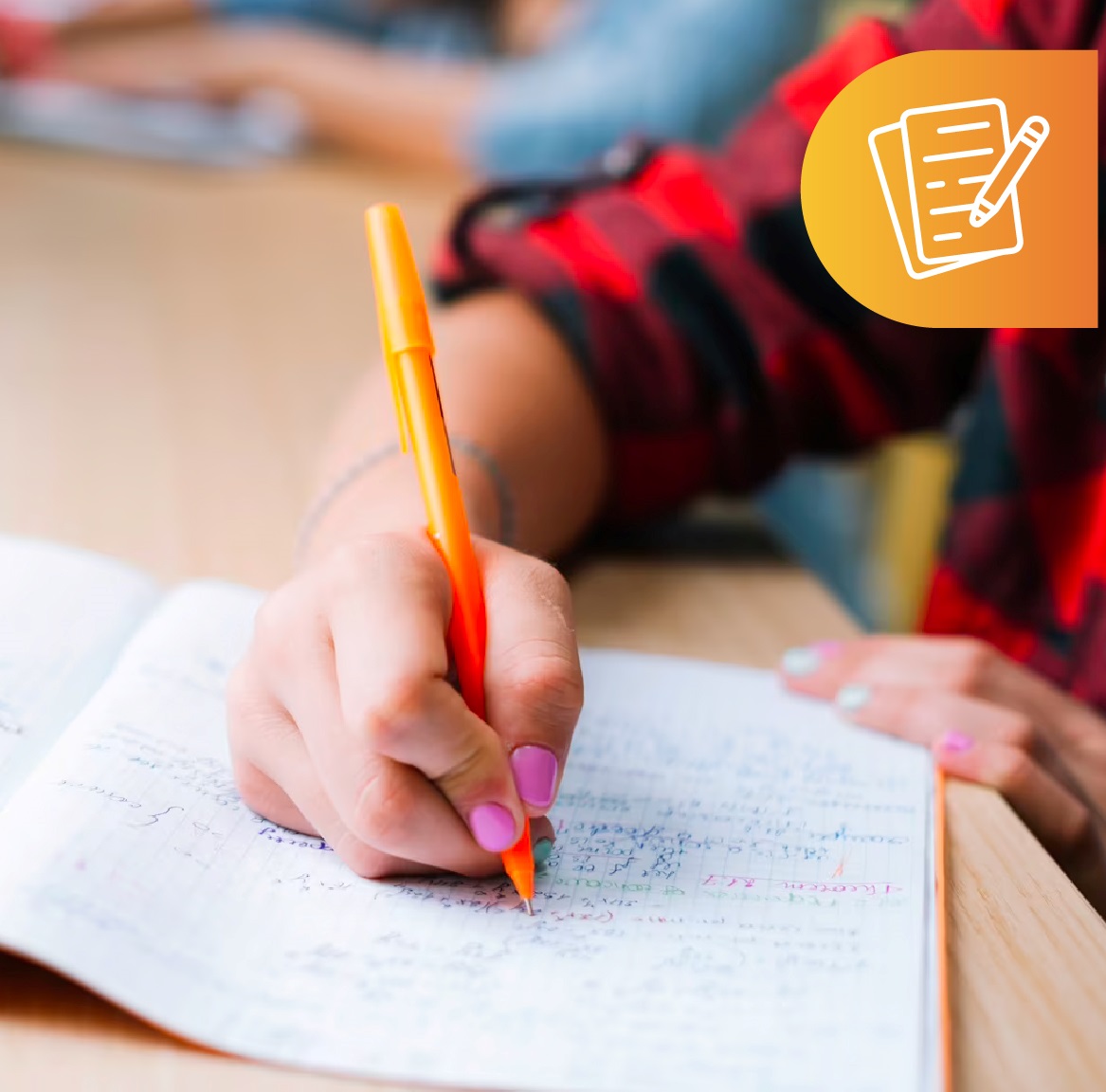Screen time for kids has long been a much-debated topic, with many arguing that screens are detrimental to children’s health. In recent times there has been a shift from printed to digital materials in schools. This has been, of course, largely accelerated by the recent pandemic. This huge shift has been of interest to researchers, who wanted to find an answer to the question – does the medium of what we read matter?
Reading Medium Matter
Dr Naomi Baron, Professor Emerita of Linguistics at American University, looked at research findings from across the world in her white paper Medium Matters for Reading. In the paper, she reports that studies have shown that students perform better in tests that are printed and not on screen.
But why?
When asked, students themselves reported they found reading from printed material to be easier, and that they were able to concentrate and recall information more effectively.

Sight and spatial awareness have a role to play in helping students to memorize what they have read. One student reported, “What I like the most about hard copy is that my spatial memory works best, so I remember material by where it was.” Our brains are more likely to be able to visualize the words we have read when we can remember where they were – for example, halfway down the page and on the left side.
Students themselves reported they found reading from printed material to be easier, and that they were able to concentrate and recall information more effectively.
Shallow Reading
Marginalia (writing your own notes in the margin) or annotation is a practice that goes back centuries and supports active engagement with what you are reading. Students do not annotate words on a screen as frequently or in the same way as printed text. Many students were also used to speed reading on screen and saw little opportunity for annotation. Many reported that they read printed text more carefully and saw it as ‘proper reading’.
There are also, of course, associations with screen reading that appertain to fun and social media. Scrolling on digital devices is a pastime that many students partake in. But could this mean less effort is put in when reading from a screen when studying? This is referred to in the study as ‘shallow reading’ and can indeed be a habit that crosses over to reading for information. Students reported, “My concentration increases when reading from a hard copy” and “Everything sinks in more and you can picture it more vividly.”

But are the findings purely down to perception or is there more to it? The study seems to indicate that reading in print is generally more successful than reading digitally. One of the key reasons for this was down to the properties of paper and the ways we interact with it.
Students reported, “My concentration increases when reading from hard copy” and “Everything sinks in more and you can picture it more vividly.”
For learning and memorizing
A study from the University of Tokyo found that, “the unique, complex, spatial and tactile information associated with writing by hand on physical paper is likely what leads to improved memory.” In fact, it is noted that volunteers in this study completed a note-taking task 25% faster than those who used digital devices.
One of the key findings was that volunteers who used paper had, “More brain activity in areas associated with language, imaginary visualisation, and in the hippocampus — an area known to be important for memory and navigation.” This was recorded in MRI scans performed on the volunteers whilst they were taking part.

In the study it was also found that students were better able to recall information from a schedule if they had filled it in by writing in a paper diary as opposed to recording the information digitally. In fact, the writer of the study Professor Kuniyoshi L. Sakai, a neuroscientist at the University of Tokyo, stated that, “Our take-home message is to use paper notebooks for information we need to learn or memorize.”
Similarly, a 2017 study in the journal Frontiers in Psychology found that writing by hand promotes ‘deep encoding’ of information within the brain and develops learning and cognitive development in ways that keyboard writing cannot match.
A 2017 study in the journal Frontiers in Psychology found that writing by hand promotes ‘deep encoding’ of information within the brain and develops learning and cognitive development in ways that keyboard writing cannot match.
How can we use these findings?
So how can we use these findings to help develop learning throughout primary and secondary schools in the US? It is widely accepted that too much screen time is bad for children, but that is not to say that all screen time is bad or that we ought to reject advances and changes in technology. Video clips can bring lessons to life and appeal to different types of learning styles.
But for better memory function and understanding, printed materials are far superior, as can be seen in the studies mentioned. This is why we have ensured that our planners are printed and are not digital. Owning a customized planner promotes independence, ownership and helps students to recall important information and engage with the day-to-day life within the school.
Find out more about our customized student planners by requesting your free sample and information pack today.